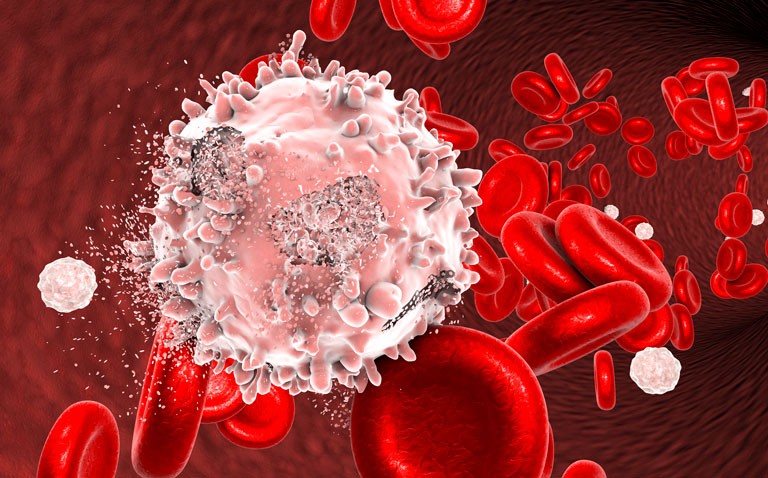Blood cancer patients who have received a third vaccine dose continue to produce a limited antibody response to the Omicron variant
Patients with blood cancer generate a reduced neutralising antibody response to the Omicron variant even after a third vaccine dose, according to a study by a UK team of researchers.
Patients with cancer who become infected with COVID-19 are known to have a higher mortality risk compared with those without the disease. However, as cancer patients were excluded for the pivotal COVID-19 vaccine trials, there was always some uncertainty over the ability of such patients to mount a sufficient neutralising antibody response to vaccination.
Available data has shown how blood cancer patients such as those with chronic lymphocytic leukaemia, have an impaired antibody response to vaccination. A further problem is that with the emergence of variants of concern which are capable of immune escape, the antibody response might be even worse.
In fact, such fears appear to have been realised with one study reporting that blood cancer patients were more likely to have undetectable neutralising antibodies compared to those with solid cancers against both the wild-type and the Alpha, Beta and Delta COVID-19 variants of concern.
Despite these findings, administration of a third COVID-19 vaccine appears to boost the neutralising antibody response for those with solid tumours but the response remains muted in blood cancer patients. For instance, one study found that following the third dose, only 54% had detectable neutralising antibodies against Delta and 54% against Beta.
For the present study, the researchers focused their attention on the Omicron variant and sought to examine the immune response generated in response to this variant in those with both solid tumours and blood cancers. The team used a live-virus micro-neutralisation assay to evaluate the response to Omicron following three doses of COVID-19 vaccines in participants enrolled in the CAPTURE study, which was a prospective and longitudinal study of patients with cancer.
Blood cancer patients’ response to third vaccine dose
The researchers enrolled 199 patients, 58% of whom had a solid cancer and the remainder a blood cancer, all of whom had received a third COVID-19 vaccine dose. They also included a matched sample before the third dose which included 179 patients (115 with solid cancers and 84 with a blood cancer).
After two COVID-19 vaccine doses among the 100 patients with solid cancers, 37% generated detectable neutralising antibodies against Omicron. In contrast, among 79 patients with a blood cancer, only 19% generated a detectable response to Omicron after two vaccine doses.
With a third vaccine dose, among the 115 patients with a solid cancer, neutralising antibodies to Omicron were detected in 90% of patients. However, for the 84 patients with a blood cancer, after a third vaccine dose, Omicron neutralising antibodies were only detectable in 56% of patients.
Based on these findings, the authors concluded that while a third vaccine dose enabled those with solid cancers to produce a robust neutralising antibody response to Omicron, only half of those with a blood cancer were able to mount a sufficient response, highlighting the need for a possible fourth dose in this patient cohort.
Citation
Fendler A et al. Omicron neutralising antibodies after third COVID-19 vaccine dose in patients with cancer Lancet 2022










